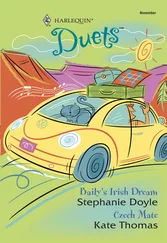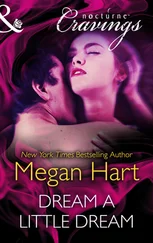The more she spoke, the more her speech bordered on becoming like a tongue twister. He couldn’t help but laugh. Rarely did he laugh with such happiness. As he laughed he considered the girl’s rare intelligence.
“It would appear that you will never be able to enter the way of the Buddha.” Smiling, he said, “You are too deeply attached to this world; your six sense organs are impure.”
“You couldn’t be more wrong. Free from delusion, my mind is the Buddha mind, that’s the real truth. Burning incense and bowing are all useless. Look at all those monks and nuns. How many have become Buddhas?”
“You have a point.” He grew silent. Suddenly he thought of his wife, who would burn some incense, worship the Buddha, and select a fortune stick whenever she found herself at a temple. She wouldn’t leave until she got the best one. It had become a pattern with her. And the so-called best fortune stick was simply the one most vulgarly desired by ordinary folk. It made one think of the old woman in The Story of the Fisherman and the Goldfish , whose greed was never satisfied.
“Why did you come to Dunhuang?” she suddenly asked, their brilliant conversation of a moment ago, vast and sweeping, cooling off.
“Your question lacks Zen. There is no ‘why.’ I felt like coming, so I came,” he replied.
“There’s always a reason.” She cocked her head and thought. “But perhaps you’re not willing to tell me the reason. Chinese don’t do things for no reason.”
Her sensitivity surprised him, but he maintained his silence.
“What about you? Do you have a ‘why?’”
“Of course I do.” Her eyes, black as lacquer, flashed. He liked this hidden haughtiness of hers; it made her seem like an argumentative child, which he found amusing.
“I’ve dreamed of Dunhuang for twenty years.”
“Twenty years? How old are you?”
Paying him no notice, she continued, “I have always been mysteriously attracted to this place. It’s Buddhist territory. In addition to being a treasured place imbued with the glory of heroes, it is also China’s mysterious and enigmatic “Bermuda triangle.”
“You could write fiction.”
“You experienced no fear as you crossed the Hexi Corridor?”
“No.”
“You’re strange.”
“You’re the one who’s strange. This is the first time I ever heard that there was something frightening about the Hexi Corridor. .”
“You mean you’ve never heard how accidents often occur there and people are swallowed up?”
“Sure, I’ve heard about accidents, but there are reasons such as the weather or the skill of the driver. .”
“Enough!” she hastily cut him short. Normally he could not stand being interrupted, but this time he was not upset and actually hoped to spend some time arguing with her. In fact, he hoped to stay there with her.
“In all your life, you’ve never encountered anything mysterious?” She asked, her two large eyes, like black jewels, challenging him.
7
Zhang Shu arrived at Dunhuang on a windy night. The first thing he did was find a place to stay. He didn’t have much money, so staying in a hotel was out of the question. With a tip from the locals, he ended up at the guesthouse with two rows of simple rooms at the foot of Sanwei Mountain. The manager was a wrinkle-faced old man who treated him somewhat coldly. He carried his bags into his room, which didn’t even have cold water. He asked the old man for half an ear of corn to gnaw on, but fell asleep before he finished eating.
He slept soundly the entire night. Only on the following day did he look at his face in the mirror from which the silver backing was peeling. He looked like a cornered beast that had escaped from the desert. He wondered why the old man hadn’t taken him for a ghost the previous night.
Later he went to look at some of the caves that were open to the public, and, like Xiao Xingxing, saw some of the Jataka tales but had not reacted to them as intensely as she had. Before coming, he had heard that a folktale expert by the name of Chen Qing lived there. He really wanted to meet him. Perhaps he would obtain something unexpected from him. Later, he noticed Cave 73, which was missing one of its frescoes.
While having supper, Zhang Shu had somewhat sullenly asked the old manager for a cheap glass of heated wine. Actually the old man liked to talk and told him that he had seen the bathing goddess painting in Cave 73. It was painted by a famous Tang dynasty painter, a monk by the name of Yu-Chi Yiseng. It had been stolen a short time ago. The cave had been closed until just recently, but he had no idea why it was suddenly open again.
It was unusually quiet that night. The silence swallowed everything, including the darkness.
As Zhang Shu lay a bit tipsy on his simple plank bed, he heard someone knocking.
Someone was knocking. Coming out of his alcohol-induced euphoria, he suddenly thought of Strange Tales from a Chinese Studio and the fox fairies — spirits that take on the form of a young woman and who come in the middle of the night — or the budding beauties who were in fact ghosts. No place could have been better than this remote place for the appearance of ghosts and fox fairies.
He opened the door. A strange-looking monk was standing before him. He was wearing a red cloth robe and was rather shapeless — the places that should have protruded were woefully sunken and vice versa. His shape seemed to change, like a bag of flour when kicked.
“Are you. . Zhang Shu? His voice was rather direct, as if he were about to belt out a couple of opera notes.
“And who might you be, venerable sir?”
“I am Dayejisi, the abbot of Sanwei Temple.”
“You are not Han Chinese, 8then?”
“I am of the Yugur nationality. 9He joined his palms, bowed, and smiled. “No one has stayed in this place in ages. Why did you decide to stay here?”
Zhang Shu was upset by such prying. “I don’t have any money, so I didn’t have any choice. Does that bother you, venerable sir?”
The monk shook his head repeatedly and continued to smile. “Your disciple finds that Mr. Zhang has a good face. I came especially to give you a physiognomy reading.”
“A reading? I don’t need one,” said Zhang Shu indifferently. He didn’t offer the monk a seat, as if the monk were nothing.
“The way I see it, you have a good face.” Dayejisi was unconcerned and kept speaking with assurance. “The Mayi Physiognomy says, ‘Man is a combination of Yin and Yang, shaped by Heaven and Earth, and endowed by the five elemental phases. He is the soul of the ten thousand things. Thus, his head resembles Heaven and his feet the Earth; his eyes resemble the sun and moon, his voice thunder; his blood vessels resemble rivers and his bones metal and stone; his nose and forehead resemble lofty mountains, his hair, the grass and vegetation. The sky must be high and the earth thick; the sun and moon must be bright, and thunder must be resonant; the rivers must flow and the metal and stone must be solid; lofty mountains must be precipitous and grass and vegetation must be fine.’ Therefore, the best physiognomy tends toward completeness. The top of Mr. Zhang’s head is round and thick. Your front and back are fully grown, your forehead is fresh and square, your ears are round like wheels, your nose straight like a gallbladder, there is clear distinction between the whites of your eyes and your pupils, your eyebrows are fine and long, your nose vigorously prominent, the ‘three portions’ of your face are harmonious, your looks are imposing and you will certainly have a long life, rarely be ill, and you will be happy and prosperous. In addition, your eyes are clear and your gaze unwavering, your countenance limpid, your bearing broad. Seen from afar, you are grand like the autumn sun shining in a frosty sky; seen up close, you are imposing like a gentle breeze moving spring flowers. When confronting something, you are firm and resolute like a wild beast pacing in the mountains; you are outstanding and unfettered, like a red phoenix soaring on its path of clouds; seated you are as immovable as a boundary stone; reclining you are as still as a perching crow; walking you are like a smooth flowing river; speaking you are as majestic as a towering peak. You are circumspect in speech, deliberate in action, unmoved by joy or anger, and undisturbed by honor or insult. You are unperturbed in the face of anything. Therefore, you have an abundance of spirit, as in the saying, ‘He who has an abundance of spirit is a man of distinction; he will never be caught in a calamity and forever enjoy the happiness to the end.’”
Читать дальше
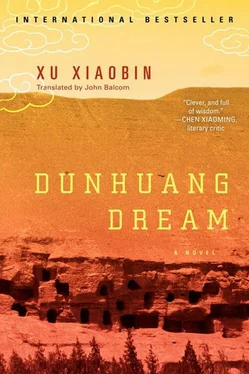


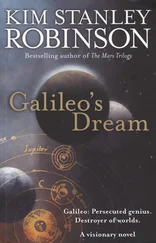
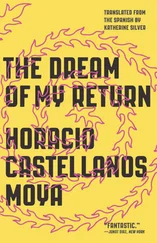


![Theresa Cheung - The Dream Dictionary from A to Z [Revised edition] - The Ultimate A–Z to Interpret the Secrets of Your Dreams](/books/692092/theresa-cheung-the-dream-dictionary-from-a-to-z-r-thumb.webp)
